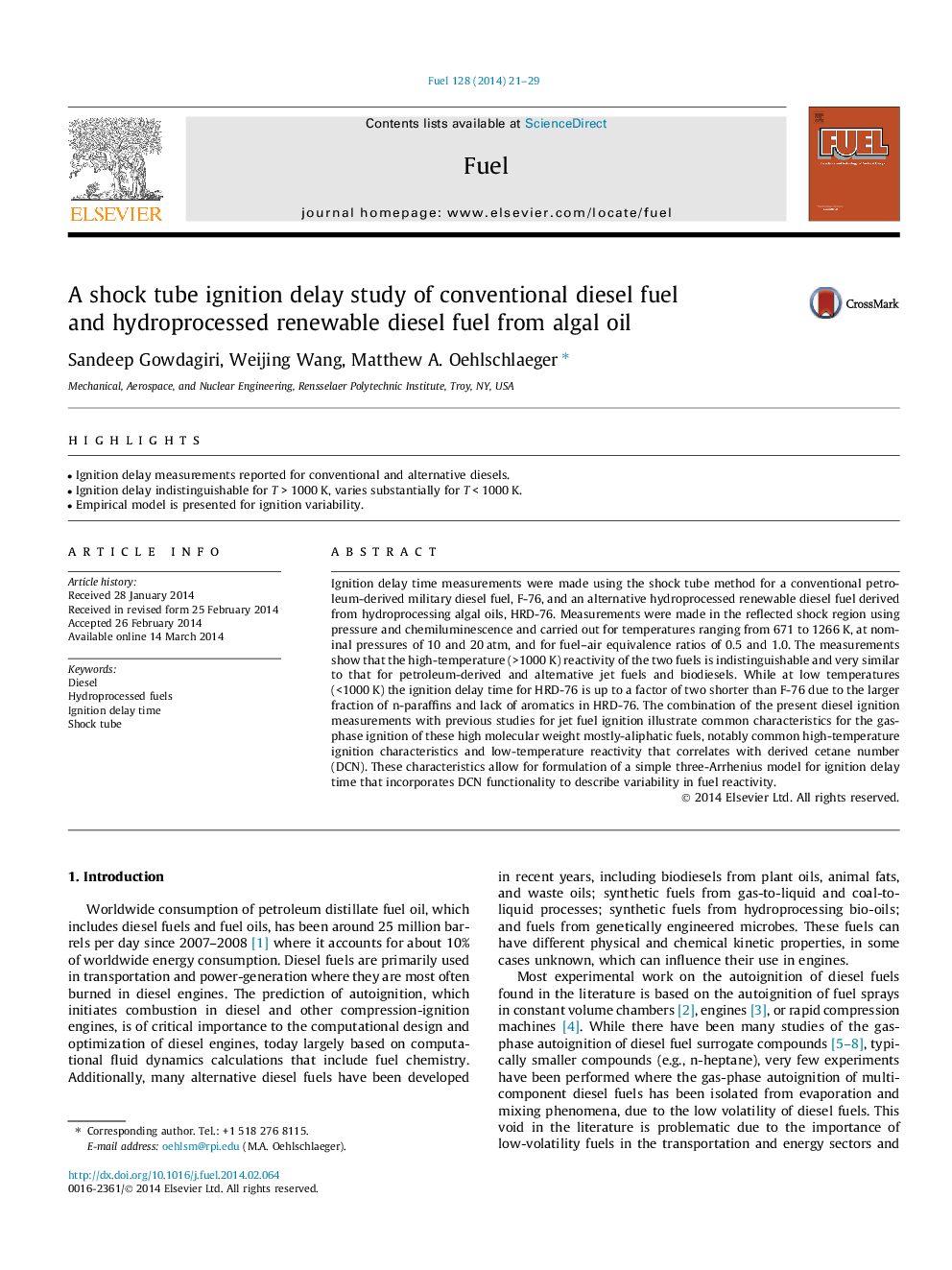| Article ID | Journal | Published Year | Pages | File Type |
|---|---|---|---|---|
| 6637541 | Fuel | 2014 | 9 Pages |
Abstract
Ignition delay time measurements were made using the shock tube method for a conventional petroleum-derived military diesel fuel, F-76, and an alternative hydroprocessed renewable diesel fuel derived from hydroprocessing algal oils, HRD-76. Measurements were made in the reflected shock region using pressure and chemiluminescence and carried out for temperatures ranging from 671 to 1266Â K, at nominal pressures of 10 and 20Â atm, and for fuel-air equivalence ratios of 0.5 and 1.0. The measurements show that the high-temperature (>1000Â K) reactivity of the two fuels is indistinguishable and very similar to that for petroleum-derived and alternative jet fuels and biodiesels. While at low temperatures (<1000Â K) the ignition delay time for HRD-76 is up to a factor of two shorter than F-76 due to the larger fraction of n-paraffins and lack of aromatics in HRD-76. The combination of the present diesel ignition measurements with previous studies for jet fuel ignition illustrate common characteristics for the gas-phase ignition of these high molecular weight mostly-aliphatic fuels, notably common high-temperature ignition characteristics and low-temperature reactivity that correlates with derived cetane number (DCN). These characteristics allow for formulation of a simple three-Arrhenius model for ignition delay time that incorporates DCN functionality to describe variability in fuel reactivity.
Keywords
Related Topics
Physical Sciences and Engineering
Chemical Engineering
Chemical Engineering (General)
Authors
Sandeep Gowdagiri, Weijing Wang, Matthew A. Oehlschlaeger,
